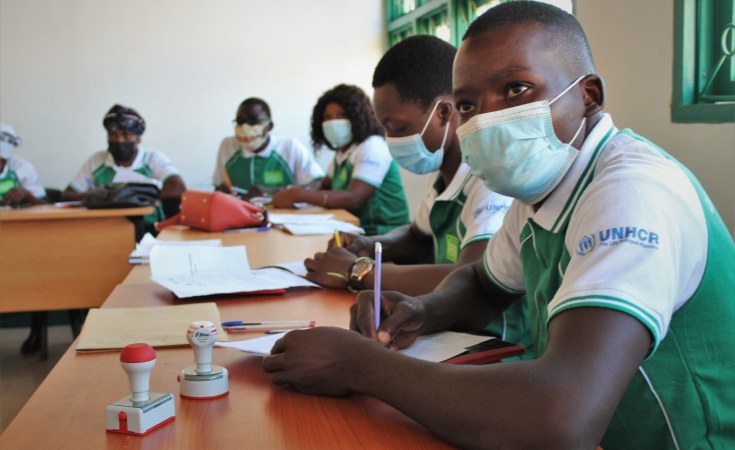Maputo — The United Nations Development Programme (UNDP) and the Government of Mozambique, through the Ministry of Foreign Affairs and Cooperation (MINEC, in Portuguese), signed on 21/02/2023 a 2-year project entitled “Immediate Stabilization in Cabo Delgado Province, Mozambique”.
This project, which has a confirmed contribution of around USD 20 million from the Kingdom of the Netherlands and the European Union, has the main objective of supporting the efforts of the Government of Mozambique in the immediate stabilization and recovery of Cabo Delgado and laying the necessary foundations to strengthen peace and promote development in the region.
Since 2017, the province of Cabo Delgado has been going through a crisis of insecurity that has forced the displacement of around 950,000 people. The project, which will be implemented in the most affected districts of Cabo Delgado, namely Macomia, Quissanga, Palma, Mocímboa da Praia, Muidumbe and Nangade, will (i) improve community security, with a focus on the rule of law and access to justice, creating foundations for social cohesion, peace and development; (ii) ensure the provision of essential services, through the rehabilitation of basic infrastructure such as maternity wards, schools, street lighting and access roads, among others; and (iii) provide socio-economic support to individuals and communities, including immediate support for the livelihoods of the affected populations.
The stabilization project is within the framework of the Cabo Delgado Province National Reconstruction Plan (PRCD) and the Northern Mozambique Resilience and Integrated Development Programme (PREDIN) for a holistic and multidimensional response to the crisis in Cabo Delgado and the socio-economic development of the region.
Background
As part of national stabilization and recovery efforts, UNDP established a local office in Pemba in 2021 and started implementing stabilization activities. In collaboration with the central Government, including the Secretary of State of Cabo Delgado Province, the Provincial Governor, the Provincial Secretariat for Economy and Finance and the Northern Integrated Development Agency (ADIN), among others, UNDP has supported the re-establishment of basic services through rehabilitation and reconstruction of destroyed public infrastructure, economic recovery through monetary interventions and livelihood support.
Participatory community involvement is key to re-establishing the social contract maintaining peace and enabling long-term processes of social cohesion and development. A community-based approach also ensures ownership and sustainability of project results.
The six target districts of the programme were, prior to the conflict and based on 2017 census data, predominantly rural, with over 70% of the population living in rural areas. Based on this reality, the programme will not limit interventions to the main urban centres but will also engage the communities to which most of the population will eventually return voluntarily.
About UNDP
UNDP works in about 170 countries and territories, helping to eradicate poverty, reduce inequalities and exclusion, and build resilience so countries can sustain progress. As the UN’s development agency, UNDP plays a critical role in helping countries achieve the Sustainable Development Goals.


